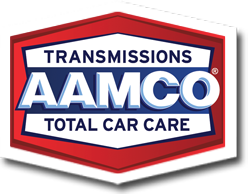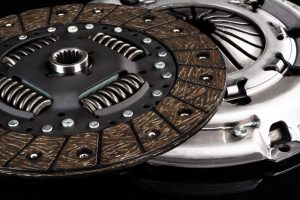A healthy clutch is key to keeping your car moving. While it’s normal for parts of your clutch to wear out with time, when you notice signs of a failing clutch, it’s important to pay attention. As your car’s clutch wears out, you’re likely to notice symptoms of a slipping clutch. Not only does a slipping clutch make it trickier to drive, you’re also at risk of finding yourself stranded by a failed clutch if you wait too long for repairs. Bring your car to a trusted mechanic like those at your local AAMCO and ensure your car’s clutch is well taken care of.
Weak Acceleration or a Lack of Power
If you find it increasingly difficult for your car to pick up speed, you may be dealing with a slipping clutch. Because a slipping clutch means it’s difficult to get into or stay in gear, your car may be struggling to stay in the proper gear, leading to weak or inconsistent acceleration.
A True Test is When Towing Heavy Loads or on Hilly Drives
Poor acceleration from a slipping clutch is likely to be most noticeable while towing heavy loads or while driving uphill. These types of driving put more strain on the transmission and clutch, so if the clutch is wearing out, it’s more likely to struggle in these situations. Once you notice difficulty accelerating, it’s important to have your vehicle inspected as soon as possible.
More Revving but Less Speed
A slipping clutch may also show up as more-than-usual engine revving. This is because your car may be slipping into a lower gear or into neutral, where the engine will rev and you’ll notice a sudden lack of power or speed. Typically, your car will rev more and show a higher RPM as it approaches shifting up in gears. If this upshift doesn’t happen as it should, it can be due to a slipping clutch.
When Your Car isn’t in Gear, You Won’t Get Far
While driving, you typically won’t ever shift into Neutral. This is because when your car isn’t in gear, you have no ability to get or keep your car in motion. A slipping clutch may slip into neutral or the incorrect gear at any time, keeping you on your toes as the driver and making it tricky to navigate traffic.
A Burning Smell While Driving
Burning is never a welcome smell. If you notice a burning smell while driving, it’s possible it’s an indication of a slipping clutch. This is because a slipping clutch leads to more friction, increasing the amount of heat generated in the transmission and clutch. The worse your clutch is slipping, the more likely you are to notice a burning smell.
Timing is Key with Burning Smells
As with many auto repairs, timing is important with diagnostics. Pay attention to when you notice the burning smell – is it only when braking or does it stay fairly constant while driving? While these can still just be vaguely helpful to you, they can help point your mechanic in the right direction when you bring your car to an auto shop for repairs.
Changes in the Feel and Height of Your Clutch Pedal
If you drive a manual transmission, you’re likely very familiar with how your clutch pedal should feel. When that changes, it can be a good indication of clutch problems. When you take your foot off the pedal, if it doesn’t return to the same height, that can be an indication of a slipping clutch, whether it seems higher or lower than usual.
A Slipping Clutch May Also Lead to Quick Disengagement
You’re likely very in tune with the point at which your clutch pedal engages and disengages. One of the biggest indicators of a slipping clutch is quick disengagement when pressing down on the clutch pedal. If this happens when pressing the clutch pedal an inch or less, it’s time to have your clutch inspected for necessary repairs.
Trust AAMCO Boardman’s Clutch Repair Service
There’s nowhere better to come then your local AAMCO Boardman auto repair shop when you notice any car problems. A necessary clutch repair is nothing to put on the back burner. Let our expert mechanics help get your vehicle safely back on the road again. Easily schedule an appointment with us online today!

